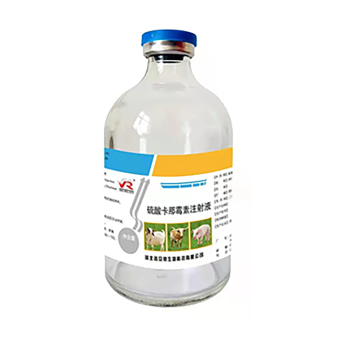- Afrikaans
- Albanian
- Amharic
- Arabic
- Armenian
- Azerbaijani
- Basque
- Belarusian
- Bengali
- Bosnian
- Bulgarian
- Catalan
- Cebuano
- Corsican
- Croatian
- Czech
- Danish
- Dutch
- English
- Esperanto
- Estonian
- Finnish
- French
- Frisian
- Galician
- Georgian
- German
- Greek
- Gujarati
- Haitian Creole
- hausa
- hawaiian
- Hebrew
- Hindi
- Miao
- Hungarian
- Icelandic
- igbo
- Indonesian
- irish
- Italian
- Japanese
- Javanese
- Kannada
- kazakh
- Khmer
- Rwandese
- Korean
- Kurdish
- Kyrgyz
- Lao
- Latin
- Latvian
- Lithuanian
- Luxembourgish
- Macedonian
- Malgashi
- Malay
- Malayalam
- Maltese
- Maori
- Marathi
- Mongolian
- Myanmar
- Nepali
- Norwegian
- Norwegian
- Occitan
- Pashto
- Persian
- Polish
- Portuguese
- Punjabi
- Romanian
- Russian
- Samoan
- Scottish Gaelic
- Serbian
- Sesotho
- Shona
- Sindhi
- Sinhala
- Slovak
- Slovenian
- Somali
- Spanish
- Sundanese
- Swahili
- Swedish
- Tagalog
- Tajik
- Tamil
- Tatar
- Telugu
- Thai
- Turkish
- Turkmen
- Ukrainian
- Urdu
- Uighur
- Uzbek
- Vietnamese
- Welsh
- Bantu
- Yiddish
- Yoruba
- Zulu
9 月 . 23, 2024 18:22 Back to list
Veterinary Antibiotics Overview and Their Applications in Animal Health
The Role of Antibiotics in Veterinary Medicine
Antibiotics are crucial tools in veterinary medicine, used to treat, prevent, and control bacterial infections in animals. The use of antibiotics in veterinary practice is vital not just for the health of animals but also for ensuring the safety of food products and controlling zoonotic diseases—diseases that can be transmitted between animals and humans. The following is an exploration of the various types of antibiotics commonly used in veterinary medicine, their applications, and the evolving challenges associated with their use.
Veterinarians frequently employ a range of antibiotics, each with specific indications, mechanisms of action, and spectra of activity. The main categories of antibiotics in veterinary medicine include
1. Penicillins Derived from Penicillium fungi, penicillins are among the oldest and most widely used antibiotics. They are effective against a variety of gram-positive bacteria and some gram-negative bacteria. Common examples include amoxicillin and penicillin G, which are often used for treating skin infections, respiratory infections, and urinary tract infections in pets and livestock.
2. Tetracyclines This group includes antibiotics like tetracycline, doxycycline, and oxytetracycline. They are broad-spectrum antibiotics, effective against a wide range of bacteria, including many that are resistant to other antibiotics. Tetracyclines are often used in treating respiratory infections, Lyme disease in dogs, and certain respiratory illnesses in cattle.
3. Macrolides Macrolides, including erythromycin and azithromycin, are used primarily for treating respiratory infections and some gastrointestinal infections in animals. These antibiotics are known for their ability to inhibit bacterial protein synthesis and are particularly valuable in cases involving mycoplasma infections.
list of antibiotics in veterinary medicine

4. Sulfonamides These synthetic antibiotics, such as sulfadiazine and sulfasalazine, are often used to treat infections in both small animals and livestock. They work by inhibiting folic acid synthesis in bacteria and are commonly employed to manage urinary and gastrointestinal infections.
5. Fluoroquinolones This class, which includes enrofloxacin and pradofloxacin, is particularly potent against gram-negative bacteria. Fluoroquinolones are used in acute cases of serious infections in dogs and cats, as well as for certain infections in livestock. However, their use is often restricted due to concerns about the development of antibiotic resistance.
The application of antibiotics in veterinary medicine, while beneficial, raises several concerns regarding antibiotic resistance. Overuse and misuse of antibiotics in animals can lead to the selection of resistant strains of bacteria, which can pose a significant risk to human health. As such, there is an increasing emphasis on responsible antibiotic use, which involves careful diagnosis, appropriate selection of antibiotic therapy, and adherence to prescribed treatment regimens.
Veterinary guidelines advocate for the prudent use of antibiotics, encouraging veterinarians to adopt practices that minimize resistance while ensuring effective treatment for infections. This includes thorough diagnostic testing to determine the specific bacterial strain and its susceptibility to antibiotics, as well as considering alternative treatment methods when appropriate.
In conclusion, antibiotics play a vital role in maintaining animal health and welfare, but their use must be carefully managed to prevent the rise of antibiotic-resistant bacteria. Collaboration among veterinarians, farmers, and regulatory agencies is essential to establish responsible antibiotic use practices that protect both animal and human health in the long run.
-
The Power of Radix Isatidis Extract for Your Health and Wellness
NewsOct.29,2024
-
Neomycin Sulfate Soluble Powder: A Versatile Solution for Pet Health
NewsOct.29,2024
-
Lincomycin Hydrochloride Soluble Powder – The Essential Solution
NewsOct.29,2024
-
Garamycin Gentamicin Sulfate for Effective Infection Control
NewsOct.29,2024
-
Doxycycline Hyclate Soluble Powder: Your Antibiotic Needs
NewsOct.29,2024
-
Tilmicosin Premix: The Ultimate Solution for Poultry Health
NewsOct.29,2024













